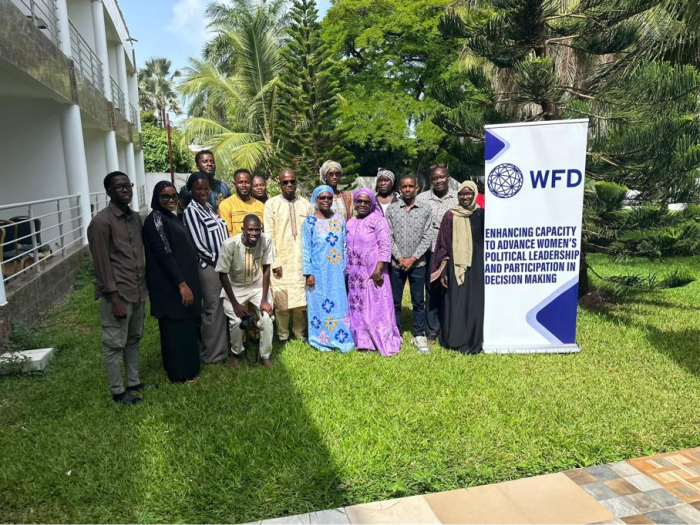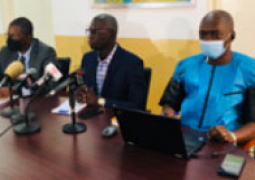
The forum, held on July 31 at the Metzy Hotel in Kotu, brought together government officials, civil society actors, media representatives and development partners to rally support for the Charter’s approval by the National Assembly.
The engagement sought to raise awareness of the Charter and mobilise stakeholders to champion its adoption as a legislative tool for advancing gender equality and social justice. The initiative represents years of collaboration between WFD, the National Assembly’s Gender Committee, and local advocacy networks, with funding support from the British High Commission.
Key partners included the National Human Rights Commission, the Gender Platform, Women in Leadership and Liberation, and the Centre for Women’s Rights and Leadership.
WFD Country Director Tabu Njie Sarr welcomed participants and emphasised that the forum symbolised a shared commitment to justice and inclusion rather than a routine program. She highlighted The Gambia’s democratic progress since 2016 but warned that democracy remains incomplete without gender justice, particularly for women facing compounded discrimination due to disability.
According to Sarr, the Charter, born from a 2023 policy dialogue and extensive consultations, serves as a bold roadmap for women’s empowerment.
She described it as both morally compelling and action-oriented, calling on all stakeholders to ensure that the document translates into real change.
Quoting UN Secretary-General António Guterres, she reminded participants that gender equality is ultimately about power, and true inclusion demands shared power.
Participants also received an in-depth briefing on the Charter’s provisions from Neneh M.C. Cham, who outlined persistent barriers to women’s rights in The Gambia.
Despite the country’s progressive legal frameworks, such as the 1997 Constitution and the Women’s Act of 2015, women remain underrepresented in leadership roles and continue to face discrimination rooted in societal, cultural and religious norms.
Cham stressed that the Charter reinforces and expands existing laws by promoting the inclusion of women and girls particularly those with disabilities across governance, education and other critical sectors.
She also underscored the importance of men and women working as partners rather than competitors, and emphasised that affirmative action is a temporary measure to achieve gender parity, after which merit should prevail.
Key highlights of the Charter include: political and leadership inclusion, encouraging women’s participation at the party level and in decision-making bodies, protection from harmful practices, urging communities to preserve positive cultural values while abandoning those that harm women, property and land rights, advocating for women’s access to land ownership, especially in rural areas, recognising maternity and menstrual leave as essential components of social protection, disability inclusion, and promoting institutional non-discrimination policies and merit-based representation.
Cham concluded by stressing that awareness and advocacy must reach the grassroots, where many women remain unaware of their legal rights.
Stakeholders were urged not only to endorse the Charter but to champion its full implementation to advance a more just and inclusive society in The Gambia.
Read Other Articles In Headlines




